Lesotho - a country with a nasty political history continually fraying at the edges

Mr Mzimkhulu Sithetho
Managing Director of the Governance Institute for Sustainable Development and Editor-In-Chief of thizkingdom.com
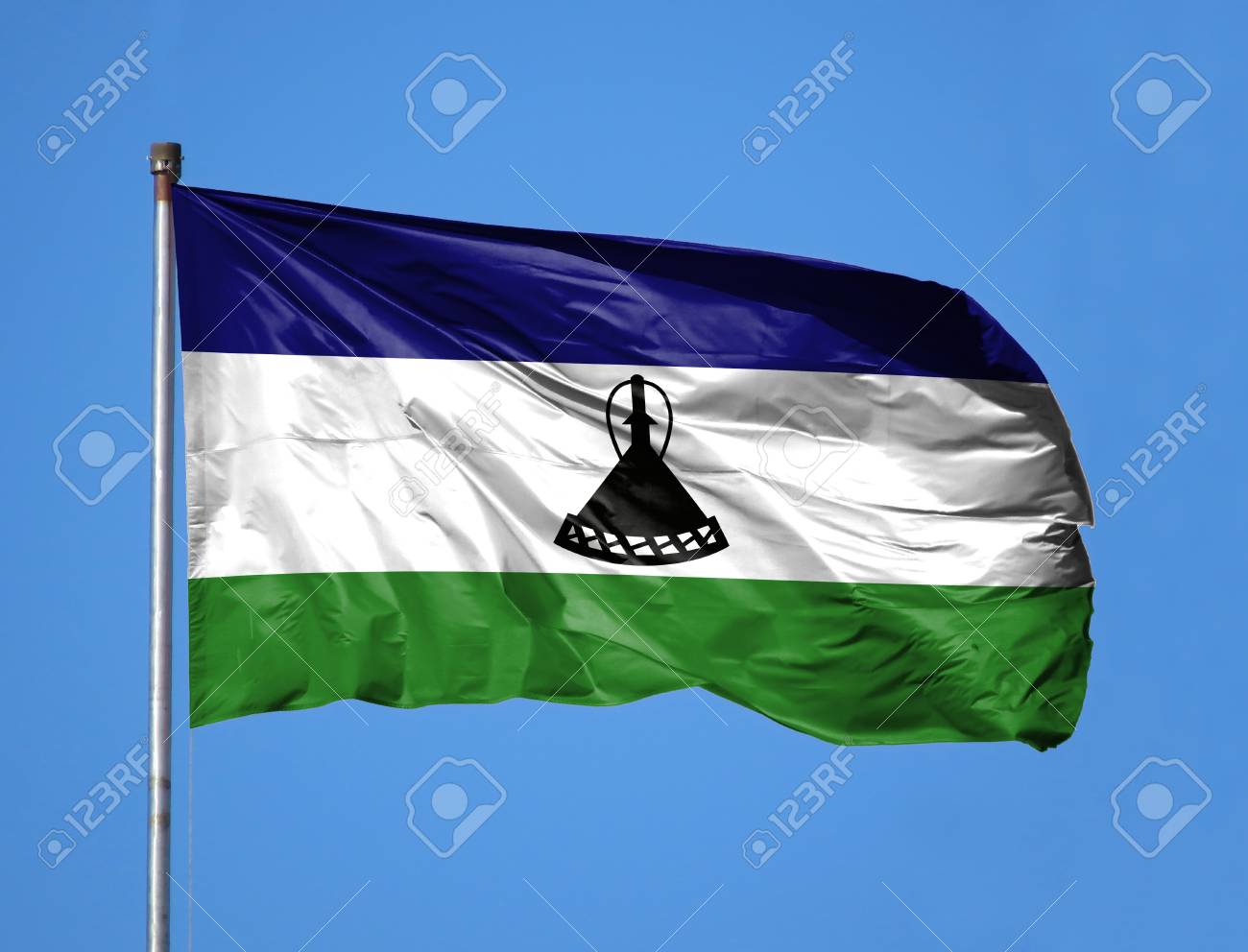
Introduction
Lesotho is turning 54 this year since the country attained independence from the Great Britain on 04 October 1966. Over the years, Lesotho has survived many rigours in her attempts to put up a stable and prosperous country. The devil lies is the kind of state that Lesotho has. The state is the one that has failed the Kingdom as those elected to form a government that leads a state have failed dismally to do so. The Kingdom has floundered in her attempts to entrench and consolidate democracy, a democracy that will lead the development trajectory for the benefit of Basotho. Lesotho has traversed a not-so-palatable political trajectory since independence, with different shades of government - one-party state and dictatorial, military and tyrannical, quassi-democratic and anti-developmental, democratic but despotic and coalition and dictatorial. The characteristics of some of the past shades of government are still prevalent today as leaders' actions are reminiscent of those of the dictatorial times, but at a time when Lesotho claims to be in a democracy.
Democratically-elected government at independence
At independence, Lesotho was a feeble democracy having just received the mantle from the British colonial administration. The five years (1965-1970) were tough for the then unexperienced government in leading a nation towards development. However, the Basotho National Party (BNP-led) government tried to put up a stable state, the one with a strong architecture to lead the development agenda. However, this was thwarted by the BNP's minority status in parliament. A number of institutions of government were established to create a formidable state.
Episodes of 1970, when a state of emergency was declared, nullifying election results and suspending the constitution placed a dull shadow on Lesotho's efforts to consolidate democracy. This episode marked the beginning of problems for Lesotho, after which it has been difficult to build national trust among various shades of Lesotho society. The political field was wrecked for forever, till today, 50 years since that unfortunate incident, politics is a dark sheep among all shades of Lesotho society, though it is the one around which all other shades revolve. Dark as it is, it negatively affects all other shades and holds Lesotho's economic, social, technological and any other development. The one-party state of Jonathan became a complete dictatorship that lacked democratic principles such as respect for human rights, decimation of freedom of expression and of the media as well as other freedoms. It was characterised by poor governance, absence of rule of law and lacked a modicum of legitimacy in the eyes of the led. It was shoved down the throats of the ruled, especially those who opposed it as those who became its tractors were persecuted until they found refuge and solace in exile in other countries.
The 1970 episode was the turning point for Lesotho towards the worst, which has haunted the Kingdom for the last five decades. It marked the beginning of a one-party state led by the Basotho National Party (BNP), with no elections and acts of tyranny and dictatorship. However, historians underscore that during this tyrannical rule, that had no characteristics of a democratic dispensation, massive economic development happened for Basotho. Some argue that the claimed development was skewed towards only a fraction of the nation as only those who supported the regime benefitted profusely. They argue that opponents were scattered around the world fleeing the iron fist of the then Prime Minister, Dr Leabua Jonathan. The BNP held fort for 15 years until it was deposed by the military on 20 January 1986. BNP's 15-year stint on power beyond the democratic regime of 1965-1970 was a thorn to those who opposed the regime.
Military junta of 1986-1992
An era that followed the tyrannical years under BNP were a military junta led by Major-General Metsing Lekhanya, who chaired two councils - the military council and the ministers' council. The military junta was a sequel to a coup de tat that had been led by Major-General Lekhanya, assisted by rogue elements of the then apartheid regime of South Africa, to depose Jonathan's government on 20 January 1986. This was also another undemocratic and dictatorial rule in the history of Lesotho. It happened at a time when there was weak solidarity among southern African and African states to abhor dictatorial rules in the region. Basotho's hopes for a flourishing democracy after experiencing a one-party state were completely shattered by yet another experience of an undemocratic rule under the military. Like its predecessor, the military rule used the army as a major state organ and weapon to run the affairs of Basotho. Like its predecessor, the military as it would be expected everywhere else, lacked characteristics of democracy - respect for human rights, decimation of freedom of expression and of the media as well as other freedoms. It was characterised by poor governance, absence of rule of law and no modicum of legitimacy of the government in the eyes of the led. In a government where the barrel of a gun is order of day, people only submit in fear, not because they accept the ruler.
Period of epoch-making (1993-2002) - ushering in of democracy
As time went-by, the international community had become intolerant of dictatorships, coups and undemocratic seizures of power. Therefore, those that had already trotted on undemocratic paths like Lesotho were under extreme pressure to relinquish power to democratically-elected governments. Winds of change in the southern hemisphere were blowing towards democratic governments elected in multiparty elections. That movement was experience in many parts of the Africa. In 1990, South West Africa became independent from the then apartheid South Africa to become what is Namibia today. Zambia's long-time serving and one-party state leader, Kenneth Kaunda was toppled in a democratic election by Frederick Chiluba, who led the Movement for Multiparty Democracy (MMD) in 1991. The last baby to join the international call for democratic rule was South Africa, which went for democratic elections in 1994, ushering in the first democratic government led by majority black people.
Lesotho was no different, the military junta was under immense pressure to give way for a democratic government. Basotho experienced what they later termed the dawn of the second wave of democracy, which came with the multiparty elections of 1993. Major-General Phisoane Ramaema, who succeeded Major-general Lekhanya, handed over the reins of power to the democratically-elected government. Basutoland Congress Party (BCP), which had won the 1993 elections by a landslide, took over the reins to lead Basotho into a long-awaited paradise. Basotho pinned their hopes on the new BCP-led regime, which was led by a political stalwart, Ntsu Mokhehle, whom Basotho nicknamed, Moses, reminiscent of the Moses in the Bible, who was handpicked by God to lead Israelites who were under a dictatorial yoke of Farrow in Egypt.
However, what was supposed to be a glimmer of hope for Basotho turned out to be a disappointment as the BCP-led government failed to marshal a new development agenda for Basotho. Having won by a landslide, and with no opposition in parliament, the BCP politburo embarked on a crusade of retaliation to the BNP by ridiculing and deriding BNP, which was not even in the national assembly. Some analysts refer to the 1993 - 1998 era as the epitome of a lost time in the history of Lesotho. BCP lost the grand opportunity to lead the nation towards the greener pastures, a paradise so highly expected. BCP got intoxicated with electoral victory, but did nothing for Basotho until the party got engulfed in internal destruction that led to the formation of the Lesotho Congress for Democracy (LCD) in 1997.
The BCP split was a result of a long-standing feud between two major factions within the BCP - the pressure group led by Molapo Qhobela (progressive elements) and the grand BCP-ites who were led by Mokhehle. As if haunted by a spell of splintering, it was not long that within the nascent LCD, the nasty character of factionalism within the congress movement started eating the n ew party until it broke down into pieces such that the mighty party together with its predecessor, BCP are just political minnows in the political landscape of Lesotho. Today, BCP has only one seat in the National Assembly, while LCD has 10, from 65 in 1993 and 79 in 1998 respectively. The political arena got dusted with mediocrity, factionalism, greed, hunger for power at the expense of the majority and lack of a national development agenda for the benefit of Basotho.
Political and voter fatigue and apathy followed by ABC formation
The mid 2000s saw gradual diminution of hope, voter and political fatigue among Basotho. This was demonstrated in the disappointedly low turnout at the 2005 local government elections, which only registered an 18 percent voter turnout. Service delivery was dismally low, corruption was rearing its ugly head, exacerbated by arrogance with majoritarian rule by the LCD politburo. Basotho got angry and bitter at the political developments such that this period saw emergence of a new breed of political formation, the All Basotho Convention (ABC). The new party's name spelled hope for Basotho, that it would end the political polarisation of nationalists and congressmen, which has destroyed the country's nascent politics. Formation of the ABC brought a modicum of hope to Basotho that it would be 'a true convention' the one that would bring all Basotho in their various facets under one non-aligned political movement. Expectation was high that ABC would chart a new destiny for the nation, which had been battered by episodes that are alien to the expectation of a new dawn to come to Lesotho, that of politics of development. However, as soon as less than five years since its inception, the ABC leadership showed its true colours, far from what they promised. The unfortunate spell of factionalism started to eat out the new party, which started splitting and went to the next poll with divisions.
ABC has disappointed many, even within its own ranks
Today, the ABC has become a thorn on the skin of the voters, including its own followers. The mal-governance within the party such as the inability of the leadership that was not elected to refuse to accept the ABC voters' democratic choice of their own leaders. That is a serious affront to internal democracy within the ABC and travesty of principles of good governance. The total failure to rein in intra-party conflict, which resulted from power jostling and wrangling among party heavyweights in pursuit of controlling the levers of power with the party was a clear signal of a leadership deficit within the ABC. The inability of the party leader to bring the warring factions together and chart the way forward, hence dividing the party right to the core. Basotho witnessed the biggest party on the land having two leaders of the party holding separate rallies and this had one telling, the leaders are perpetuating split as they have rubberstamped the two camps within the party. This malady had a chilling effect for the politics of the land and more importantly, the government as it detracted attention away from the development agenda, but on the power struggles and conflict.
Everyone is disappointed with the ABC, except for dishonest loyalists, to the extent that the conduct of the party even beyond party circles, even in the general body politic of Lesotho and the government has had an adverse impact. The country's global image gets tainted every moment and Lesotho has become a pariah in the SADC region and has taken the route of a satellite state of South Africa. The government of Lesotho is now taking instructions from Pretoria on decisions such as opening of parliament, respect for decisions of courts of law and many others. One was forced to asked if it was wise for us to wait for a retired Minister of South Africa, Jeff Radebe, accompanied by deputy ministers to sit in front of His Majesty the King and a whole contingent of the coalition partners and the spectrum of leaders of the Kingdom to dictate what should be done in what it called an assessment of the situation. This is self-subjection to ridicule and disrespect of the highest order by a government elected with finders of voters who thought they were putting up a government that would lead a sovereign state.
Molimo O boloke Lesotho le Basotho!
Most Read
New coalition government-in-waiting unveiled
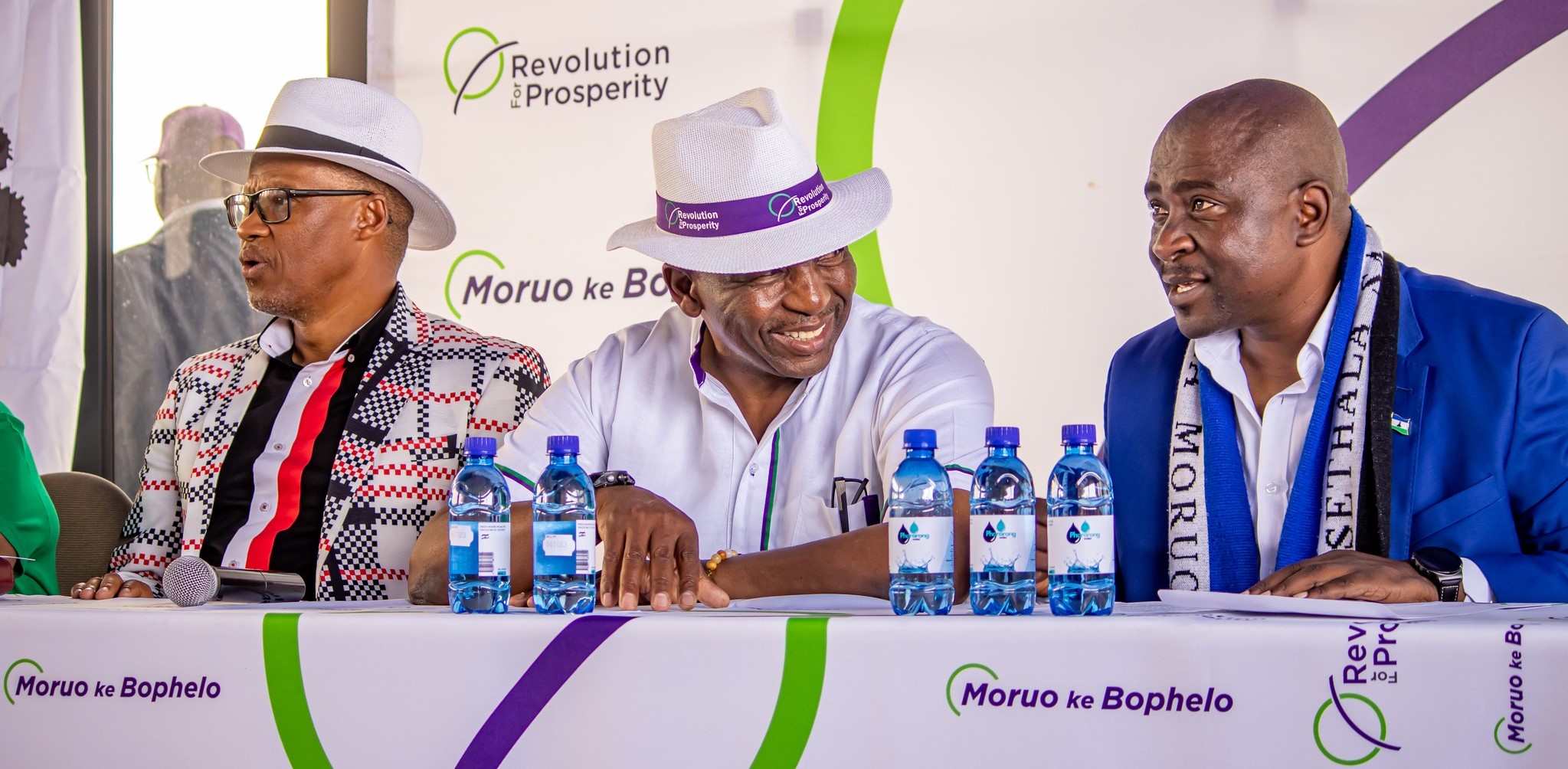
A bipartisan arrangement is ideal for the reforms:

Reforms, Elections and Democratic Stability in Lesotho
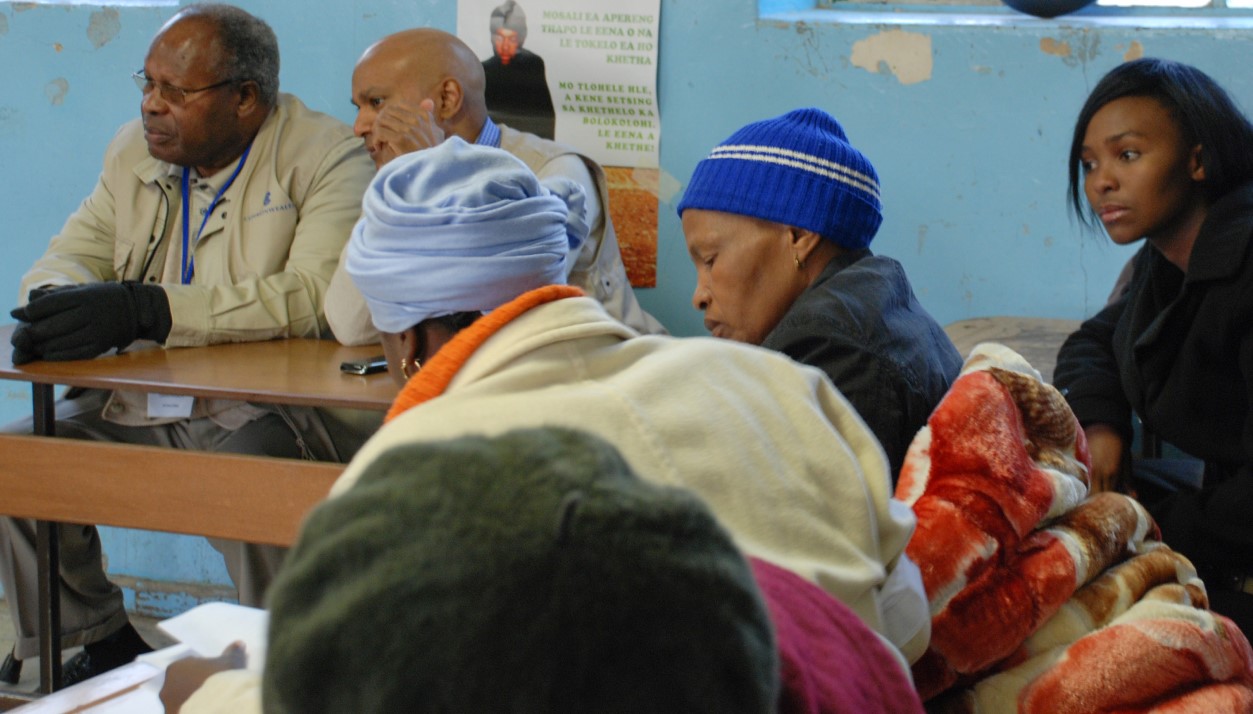
Related Stories
Personality cults have destroyed Lesotho's politics

What is the meaning of democracy within Lesotho's political parties?
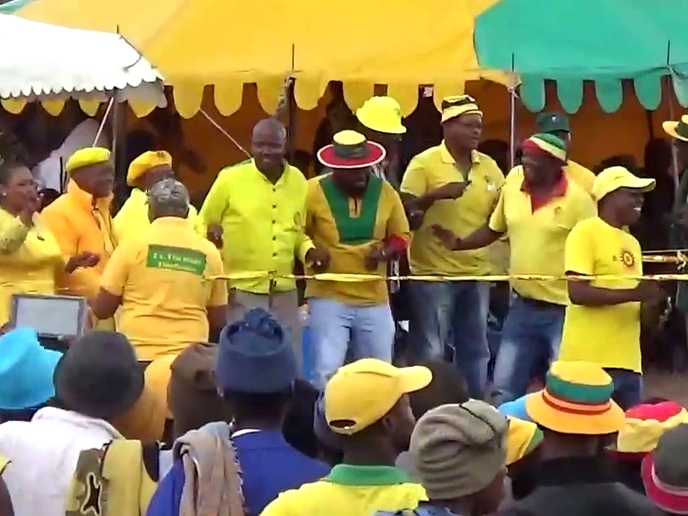
Coalition compacts have betrayed the trust of Basotho -brought more problems than expected
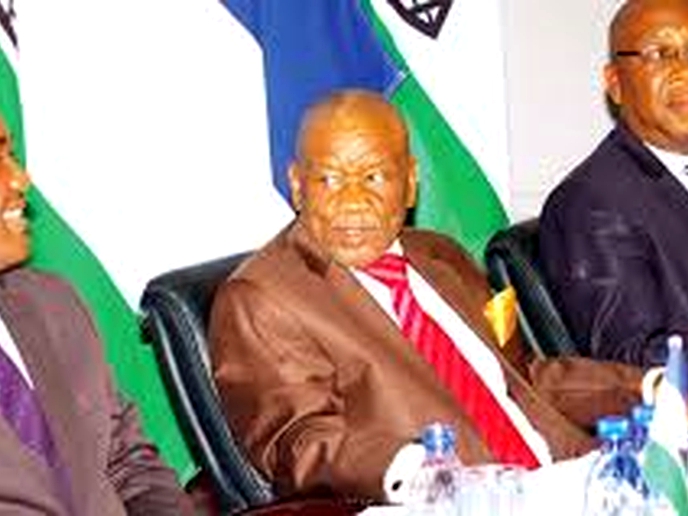
Opinion Vote Polls
Do you think the existing government is going in the right direction to benefit the people of the country?
Subscribe for your daily newsletters
Enter your email to subscribe to our newsletter.

